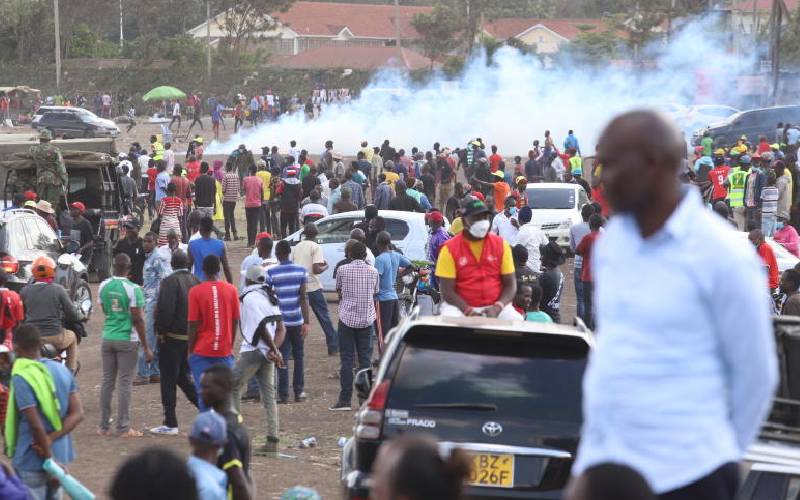×
The Standard e-Paper
Join Thousands Daily

Police teargas a rowdy faction of youth opposed to Deputy President William Ruto's gathering at Jacaranda Grounds in Embakasi East on January 16, 2022. [Denish ochieng, Standard]
All indications show we are entering into a highly volatile political environment. The happenings in the recent past show that unless something drastic is done, we could be staring at yet another disruptive season in the next seven months.